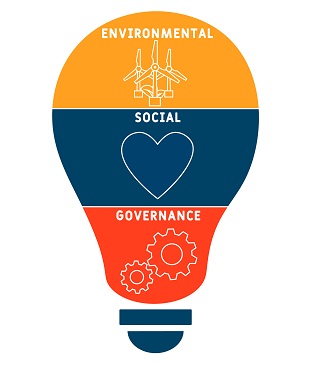The challenges of the past few decades have highlighted a need for new ways to evaluate and strengthen businesses. Environment Social Governance (ESG) is a mechanism for rating a company based on its consideration of the economic, social and environmental impact of its business.
Most companies had never heard of ESG about 5 years ago. Today about half of the largest companies in the US are actively incorporating ESG targets into their business performance incentive plans for executives. Refocusing corporate strategy to include longer term priorities and non-financial reporting requires a deep transformation of today’s dominant leadership culture. Social cognitive neuroscience sheds light on just what type of leader it will take to successfully establish, enable and achieve the ESG targets increasingly sought after by today’s investors. Here are three key leadership strengths to look for:
- Inspiring visionary
ESG issues are complex, with associated ‘never done it before’ goals that on the surface may appear to work directly against existing corporate financial targets. Leaders successfully driving ESG strategy will sell a compelling argument for ESG compliance. A willingness to share personal beliefs helps capture buy-in and dilute the apathy and resistance of the ‘old guard’. This leader will have high appeal to younger generations who already see ESG goals as high priority.
Asks more than tells
Leaders capable of refocusing and repositioning a workforce behind longer term ESG targets are excellent communicators with deep empathy and a very particular leadership style:
- They actively listen, and can tease out what is important to others, while letting them know they are heard and understood.
- They ask questions to get people reflecting and reimagining what is possible, along with their role in helping achieve it.
- They are passionately supportive of others’ goals, knowing how to unleash innovation, motivation and action in others, without telling people what to do.
- Conceptual thinker
ESG requires a ‘big picture’ perspective and seeing business as a human system. ESG criteria challenges businesses on why they do what they do, and who they are serving and impacting. We are evolving from an information age and associated focus on data and results, to an emerging conceptual or relational age, where how we do things, and how well we build and sustain relationships, are paramount. Conceptual thinkers pay attention to and seek out new connections between existing or unfamiliar parts. They are open to diverse ideas, essential for business innovation and fully embrace neurodiversity.
In a nutshell, leaders in the future of work and the successful pursuit of ESG goals will need courage, discipline and extraordinary empathy and social intelligence. Those companies with the foresight to upskill leaders in these areas are well on their way to business sustainability.


Recent Comments